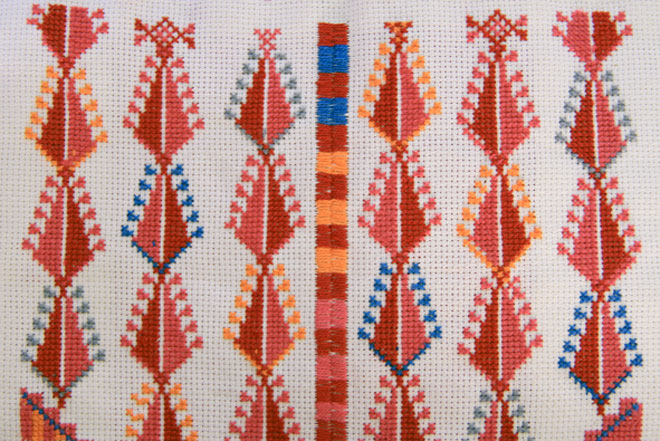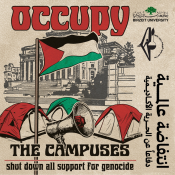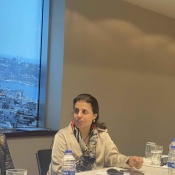Birzeit University Celebrates Land Day 2014
Birzeit University revived the anniversary of Land Day on March 31, 2014 by holding a seminar entitled "Palestine in 1948.” The Student Affairs Deanship also organized a lecture on "Palestine in 1948 and the preservation of identity.”
The lecture was delivered by international relations Professor Ahmad Azm. He emphasized the need to revive observation of Land Day, and build a generation that remembers its history, emphasizing citizenship and values that reflect the depth of Palestinians’ sense of belonging and attachment to their land.
Democratic Front for Peace and Equality representative Mohammed Baraka talked about the difficult conditions faced by Palestinians living in the territories occupied in 1948 and how they maintain their Palestinian identity. “Land Day is an important event in the history of Palestinians with Israeli citizenship,” he said, “where on the thirtieth of March every year we remember how seven young people from Galilee were martyred when the Israeli attacked them on that special day in 1976.”
Artist and filmmaker Riad Masarwa presented an intervention entitled, "When the land becomes an existential case," in which he talked about the bond between the Palestinians and their land, and the need to work on all levels, whether political or economic. Masarwa added, "The struggle of the 1948 Palestinians through their presence on this land is part of our self-assertion.”
Professor Azm addressed the steadfastness of Palestinian families that live near the wall and the settlements, presenting models for this resilience.
On the sidelines, an entertainment program for the children of prisoners was organized, including circus games, short story-telling, a play and a Palestinian heritage exhibition entitled "identity."
The speakers at the seminar focused on the importance of having political and popular will to formulate a Palestinian confrontation strategy, based on reconsidering the negotiations, mobilizing the international community, and referring to the Geneva Conventions and international humanitarian law. The speakers also focused on the importance of having a media strategy to engage media operating under Israeli control.
The attendees recommended adopting a flexible and comprehensive Palestinian national strategy to trigger Arab and Islamic countries to confront the apartheid wall and settlements in the context of a battle to defeat the occupation.







